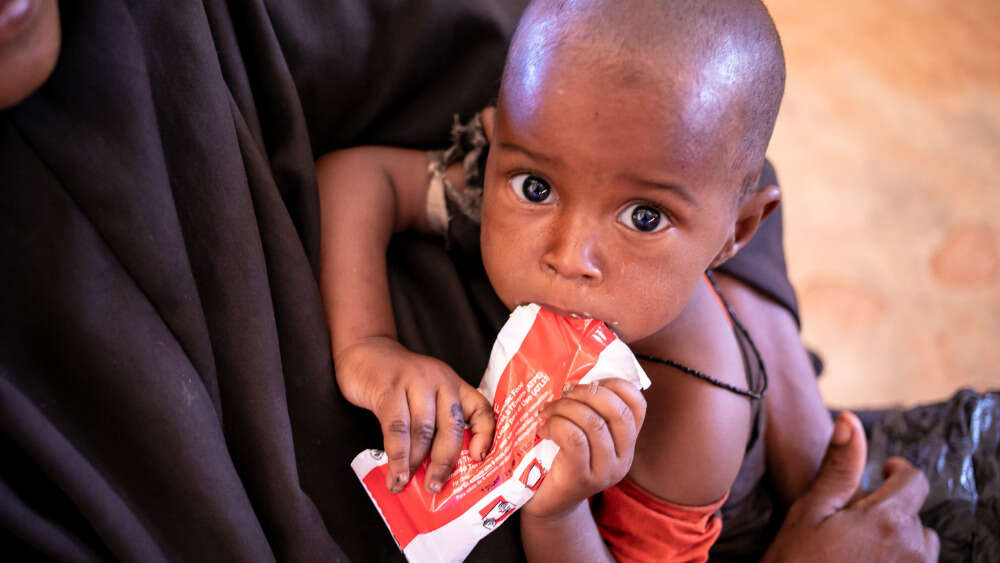The United Nations Children’s Fund (UNICEF) and the UN World Food Programme (WFP). (WFP) have both expressed significant alarm at the impact of the ongoing drought in the Horn of Africa.
UNICEF has warned that up to 20 million people in Eritrea, Ethiopia, Kenya and Somalia will need food and water assistance within months as these nations experience the driest conditions in four decades.
The crippling drought is the result of three consecutive dry seasons, which has led to severe water scarcity, the destruction of livestock and crops, displacement of populations and increasing reports of severe malnutrition.
Michael Dunford, the regional director in the WFP Regional Bureau for Eastern Africa, said hunger is growing as recurrent droughts affect the Horn of Africa.
“The situation requires immediate humanitarian action and consistent support to build the resilience of communities for the future,” he said.
“Another Perfect Storm” hits children the hardest
UNICEF’s Eastern and Southern African regional director, Mohamed M. Fall said the region cannot cope with “yet another perfect storm”, combining COVID-19, conflict and climate change.
Mr Fall said children pay ‘the biggest price’ for these ongoing crises as they are deprived of the most basic of needs, such as a home, a meal, a classroom, and access to life-saving health services.
Currently, nearly 5.5 million children in Eritrea, Ethiopia, Kenya, and Somalia are threatened by acute malnutrition and an estimated 1.4 million by severe acute malnutrition.
“UNICEF fears this number will increase by 50% if rains do not come in the next three months,” said Mr Fall.
According to the WFP, an estimated 13 million people wake up hungry each day as the Horn of Africa is enduring the driest conditions since 1981.
Australian Aid Agencies respond
Caritas Australia has launched an appeal for the region, focussing on getting emergency supplies into the most vulnerable communities in Ethiopia to help people survive, rebuild and recover from these rolling crises.
The agency says women and girls are particularly at risk during droughts, as they need to spend more and more time collecting water for the family, taking them away from school.
“Many families lack access to adequate healthcare, clean water and sanitation, and when disasters strike, the steep cost of imported medical and emergency supplies puts some of the most marginalised people at risk,” Caritas explained.
Caritas works with local partners on the ground to get food, clean water and first aid to communities as quickly as possible.
Melbourne-based agency, Anglican Overseas Aid also has a focus on Ethiopia as part of its newly launched appeal.
Jo Knight, CEO of Melbourne-based Anglican Overseas Aid, reminded Australians that the numbers of people at significant risk equate to four-fifths of our own population.
“East African communities have endured three years of poor rain, and we know that climate impacts include rains coming too little or too late with resulting crises in hunger and food systems,” Jo Knight explained.
“Adding to the plight of the local people has been conflict that has displaced millions further and the COVID pandemic, reducing food production and rising food prices.”
“We as Australians can, and must, respond to our neighbours in need. Anglican Overseas Aid has had a long-term presence in the Horn of Africa and is working in global partnerships to respond. We invite you to join us in responding generously through our appeal.”
Email This Story
Why not send this to a friend?


